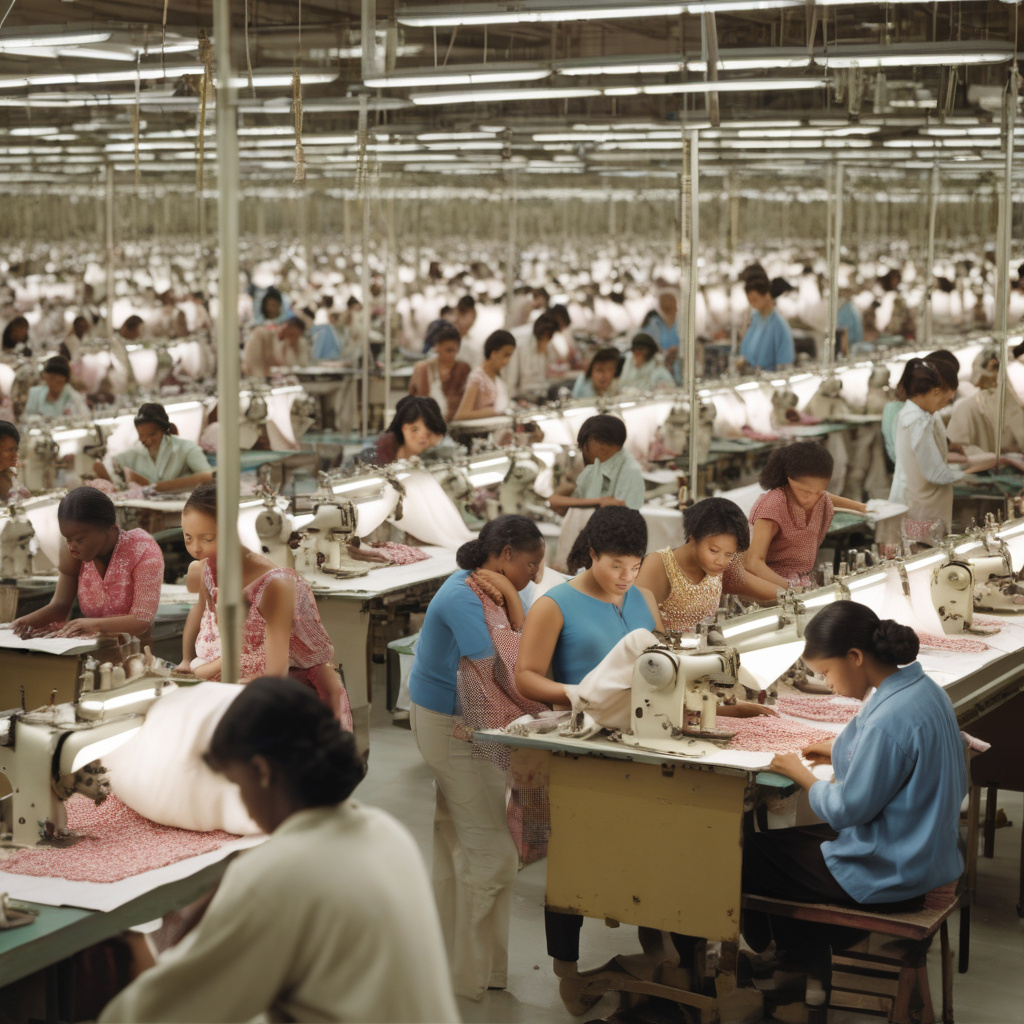Apparel Manufacturing Countries Seek to Negotiate With Trump on Tariffs
In an unprecedented move, key apparel manufacturing countries in Asia have signaled their willingness to negotiate with the Trump administration regarding tariffs imposed on fashion and footwear imports. Countries such as Vietnam, Indonesia, Cambodia, and India, which serve as critical hubs for the global apparel supply chain, have expressed a readiness to engage in discussions to reach mutually beneficial agreements rather than resorting to retaliatory measures.
The landscape of international trade has been complicated by ongoing tensions between the United States and various trading partners, particularly concerning tariffs that have been levied on imported goods. The fashion and footwear sectors, heavily reliant on Asian manufacturing, have been significantly affected by these trade policies. In response to the tariffs, which have increased costs for American retailers and consumers alike, manufacturing nations are adopting a strategic approach to mitigate the potential fallout.
Vietnam, for example, has emerged as a prominent player in apparel manufacturing. The country has experienced rapid growth in this sector, attracting foreign investment due to its competitive labor costs and favorable trade agreements. With the U.S. being one of Vietnam’s largest export markets for textiles and garments, the Vietnamese government is keenly aware of the impact tariffs could have on its economy. By expressing a willingness to negotiate, Vietnam is positioning itself not only as a key supplier but also as a cooperative partner in the global trade landscape.
Similarly, Indonesia and Cambodia have taken a proactive stance. Both countries have historically relied on the garment industry as a major source of employment and economic growth. By opting not to retaliate against U.S. tariffs, these nations are signaling their commitment to maintaining stable trade relations. This approach may enhance their attractiveness as manufacturing destinations, especially when U.S. companies are reconsidering their supply chains in light of tariff implications. Negotiations could pave the way for more favorable terms that benefit both the exporting countries and American businesses.
India, another significant player in apparel manufacturing, has also indicated a willingness to engage in dialogue. The country is known for its diverse textile industry and skilled workforce. By negotiating with the Trump administration, India could seek to secure a more favorable tariff structure that facilitates increased exports to the U.S. market. This could not only bolster India’s economy but also strengthen its position in the competitive textile landscape.
The willingness of these Asian countries to negotiate highlights their understanding of the intricate dynamics of global trade. Rather than adopting a confrontational stance, they recognize the importance of collaboration and dialogue in addressing trade barriers. By making concessions, these countries can potentially secure exemptions from tariffs or negotiate lower rates, ultimately benefiting their economies and the U.S. retail sector.
Moreover, the fashion industry is at a critical juncture. As consumers become increasingly aware of sustainability and ethical sourcing, retailers are under pressure to ensure that their supply chains align with these values. By engaging in constructive negotiations, apparel manufacturing countries can work towards establishing standards and practices that meet the evolving demands of the market while maintaining competitive pricing.
The potential for a negotiated agreement could also have positive implications for American consumers. Tariffs on imported apparel have the direct effect of driving up prices, which can lead to reduced purchasing power. By reducing or eliminating these tariffs, manufacturers in Asia can help ensure that American consumers continue to have access to affordable fashion options without sacrificing quality.
In conclusion, the willingness of apparel manufacturing countries like Vietnam, Indonesia, Cambodia, and India to negotiate with the Trump administration on tariffs represents a significant step towards fostering cooperative trade relations. These nations recognize the mutual benefits that can arise from dialogue and are prepared to make concessions to protect their economic interests. As the global landscape continues to evolve, the importance of strategic negotiations cannot be overstated, especially in the dynamic world of fashion and retail.
fashion, tariffs, apparel manufacturing, trade negotiations, global supply chain
